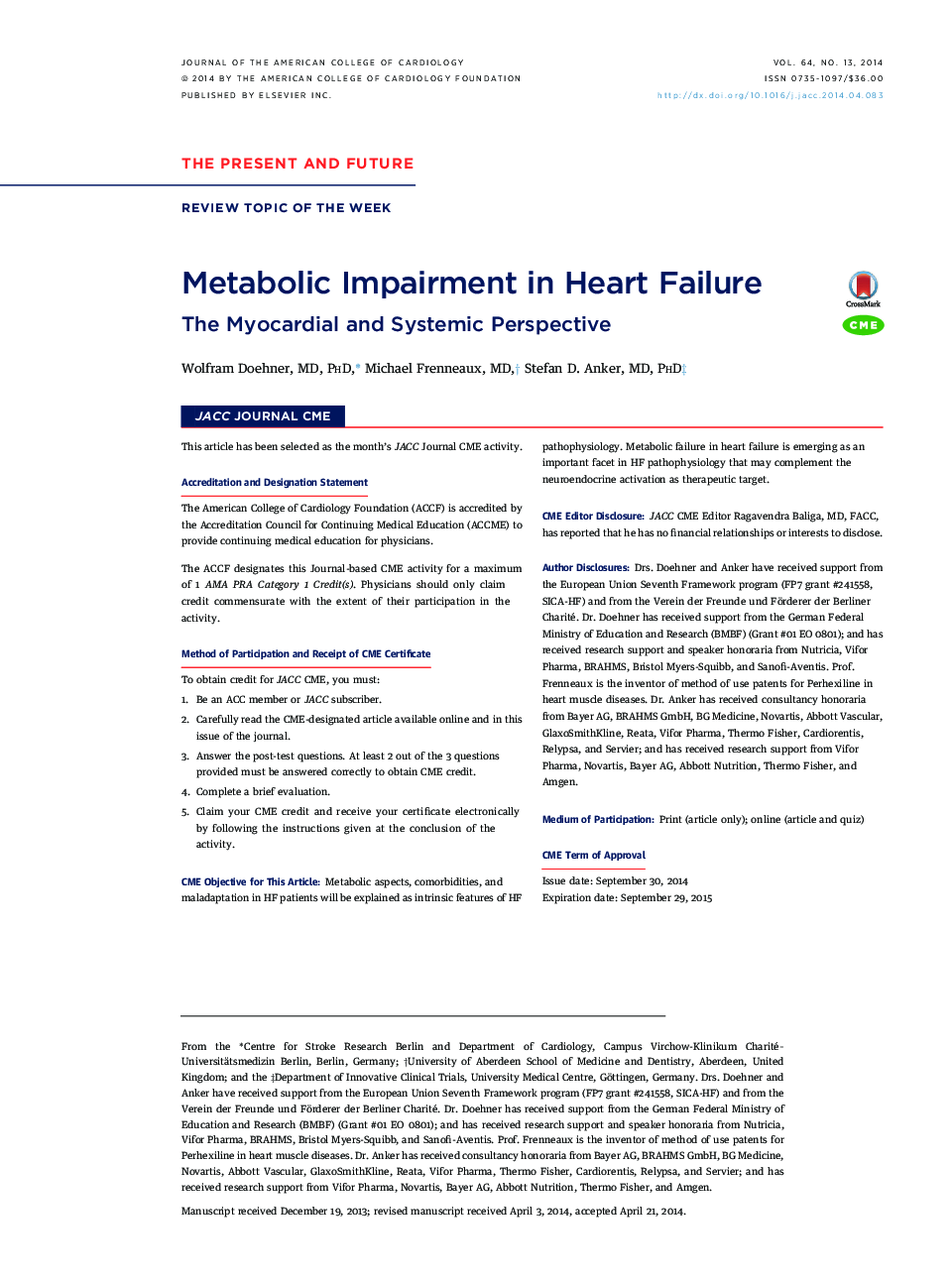| Article ID | Journal | Published Year | Pages | File Type |
|---|---|---|---|---|
| 2944939 | Journal of the American College of Cardiology | 2014 | 13 Pages |
Although bioenergetic starvation is not a new concept in heart failure (HF), recent research has led to a growing appreciation of the complexity of metabolic aspects of HF pathophysiology. All steps of energy extraction, transfer, and utilization are affected, and structural metabolism is impaired, leading to compromised functional integrity of tissues. Not only the myocardium, but also peripheral tissues and organs are affected by metabolic failure, resulting in a global imbalance between catabolic and anabolic signals, leading to tissue wasting and, ultimately, to cachexia. Metabolic feedback signals from muscle and fat actively contribute to further myocardial strain, promoting disease progression. The prolonged survival of patients with stable, compensated HF will increasingly bring chronic metabolic complications of HF to the fore and gradually shift its clinical presentation. This paper reviews recent evidence on myocardial and systemic metabolic impairment in HF and summarizes current and emerging therapeutic concepts with specific metabolic targets.
